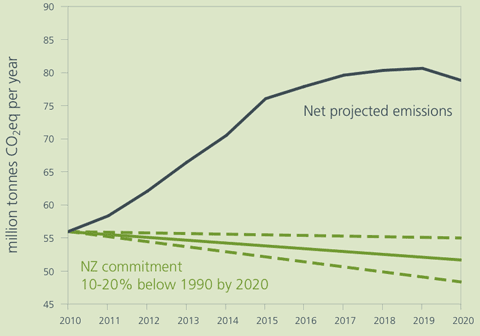[youtube] u7LfmBQFWMM[/youtube]
Glenn says he thinks this show’s “a cracker” (but he always says that), and despite the lack of a special star guest — though with the help of assorted luminaries from the Climate Futures Forum (David’s Karoly and Frame, Robert Gifford and Erik Conway –) we cover a huge range of issues, from Jim Hansen’s upcoming visit to NZ, the climate talks in Bangkok and Arctic ice, to why we need to think about our carbon budget, and why a trillion tonnes of the stuff might be a tad too much. John Cook joins us to discuss why there really is a scientific consensus on the reality of climate change and its causes, and in the solutions section we look at new developments in battery technology.
Watch The Climate Show on our Youtube channel, subscribe to the podcast via iTunes, or listen direct/download here:
Follow The Climate Show at The Climate Show web site, on Facebook and Twitter.
Continue reading “The Climate Show #11: a trillion tonnes of trouble”


 Pursuing the last drop of oil should not be on the agenda of any country which takes climate change seriously. That’s why I applaud the Greenpeace and Te Whanau a Apanui action in endeavouring – successfully for a time – to stop the Petrobas seismic testing vessel off the East Cape. Potential danger to the marine environment is one of the reasons for the protest, and in the thinking of Greenpeace climate change is the other. The action is part of their longer term campaign against new oil and coal development in favour of a clear orientation to the clean technology which would show New Zealand was serious about moving to a low-carbon world.
Pursuing the last drop of oil should not be on the agenda of any country which takes climate change seriously. That’s why I applaud the Greenpeace and Te Whanau a Apanui action in endeavouring – successfully for a time – to stop the Petrobas seismic testing vessel off the East Cape. Potential danger to the marine environment is one of the reasons for the protest, and in the thinking of Greenpeace climate change is the other. The action is part of their longer term campaign against new oil and coal development in favour of a clear orientation to the clean technology which would show New Zealand was serious about moving to a low-carbon world.  Dr Jan Wright, New Zealand’s
Dr Jan Wright, New Zealand’s 